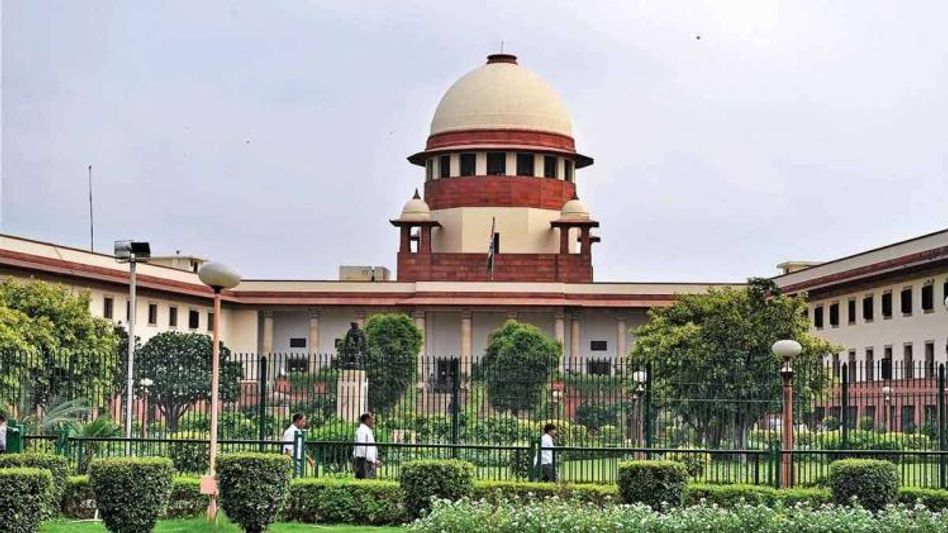Sikkim: Supreme court allows old settlers to avail exemptions under IT Act
The Apex Court also said that in “Provison to Section 10(26AAA) in so far as it excludes from the exempted category, “a Sikkimese woman, who marries a non-Sikkimese after 01.04.2008” is hereby struck down being ultra vires to Articles 14, 15 and 21 of the Constitution of India.”
 Sikkim: Supreme court allows old settlers to avail exemptions under IT Act
Sikkim: Supreme court allows old settlers to avail exemptions under IT ActIn a massive decision by the Supreme Court of India, two petitions from Sikkim on January 13 have succeeded in garnering the decision in ‘their’ favor which includes from Association of Old Settlers of Sikkim and from ‘others’.
The Supreme Court struck down the exclusion of Indian settlers who had permanently settled in Sikkim before 26.04.1975 from the definition of “Sikkimese” in Section 10(26AAA) of the Income Tax Act, 1961.
The Apex Court also said that in “Provison to Section 10(26AAA) in so far as it excludes from the exempted category, “a Sikkimese woman, who marries a non-Sikkimese after 01.04.2008” is hereby struck down being ultra vires to Articles 14, 15 and 21 of the Constitution of India.”
The Apex Court said that the benefit of income-tax exemption presently is restricted only to those Sikkimese who fall within the three clauses of the Explanation to Section 10(26AAA) of the I.T. Act, 1961, or those persons domiciled in Sikkim, or are Sikkimese as covered under the 1961 Regulation.
ii) In terms of the Sikkim (Citizenship) Order, 1975 as amended by the Sikkim (Citizenship) Amendment Order, 1989, issued by the Government of India any person who was a Sikkim Subject under the 1961 Regulation was to be deemed to be a citizen of India w.e.f. 26th April, 1975. Conversely, it is held that all citizens of India, having a domicile in Sikkim on the day it merged with India i.e. 26th April, 1975 must be covered under the Explanation in order to avail the benefit of the exemption under Section 10(26AAA) of the I.T. Act, 1961.
The Supreme Court further added,
Similarly, the Union of India shall make an amendment to Explanation to Section 10 (26AAA) of I.T. Act, 1961, so as to suitably include a 116 clause to extend the exemption from payment of income tax to all Indian citizens domiciled in Sikkim on or before 26th April, 1975.
Also Read: Sikkim: Old settlers urges the government to clear its stand on residential certificate
The reason for such a direction is to save the explanation from unconstitutionality and to ensure parity in the facts and circumstances of the case.
iv) Till such amendment is made by the Parliament to the Explanation to Section 10 (26AAA) of I.T. Act, 1961, any individual whose name does not appear in the Register of Sikkim Subjects but it is established that such individual was domiciled
in Sikkim on or before 26th April, 1975, shall be entitled to the benefit of exemption.
"This direction is being issued in exercise of powers under Article 142 of the Constitution so as to eliminate discrimination and disparity in respect of the aforesaid category of Sikkimese,who subsequently have become citizens of India w.e.f. 26th April,1975 and to save the Explanation from being rendered unconstitutional vis-à-vis such individuals who form a small percentage of Sikkimese." the Apex body added.
"And lastly it reads Proviso to Section 10 (26AAA), insofar as it excludes from the exempted category, “a Sikkimese woman who marries a non-Sikkimese man after 1st April, 2008” is hereby struck down as being ultra vires Articles 14, 15 and 21 of the Constitution of India.”, the Supreme Court further added
Copyright©2025 Living Media India Limited. For reprint rights: Syndications Today









